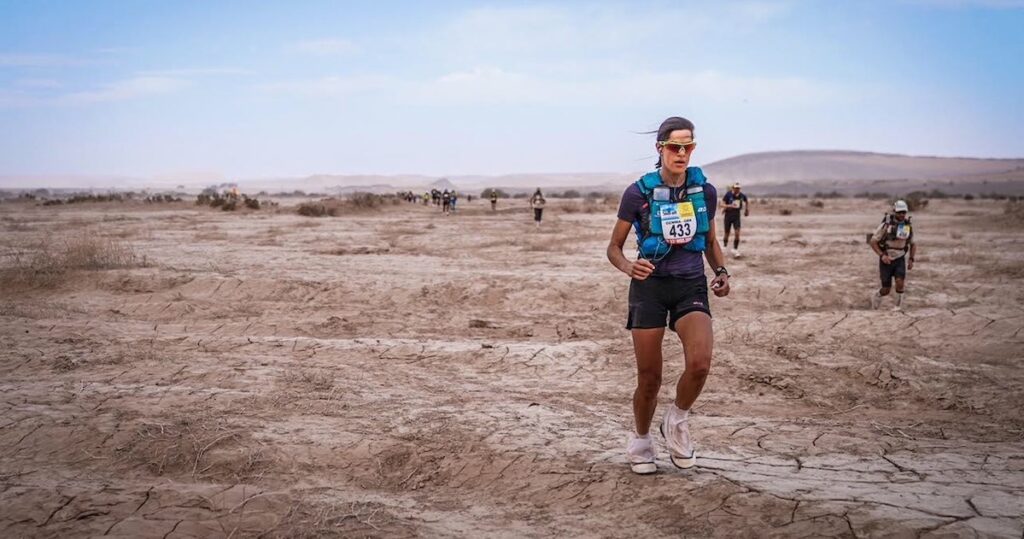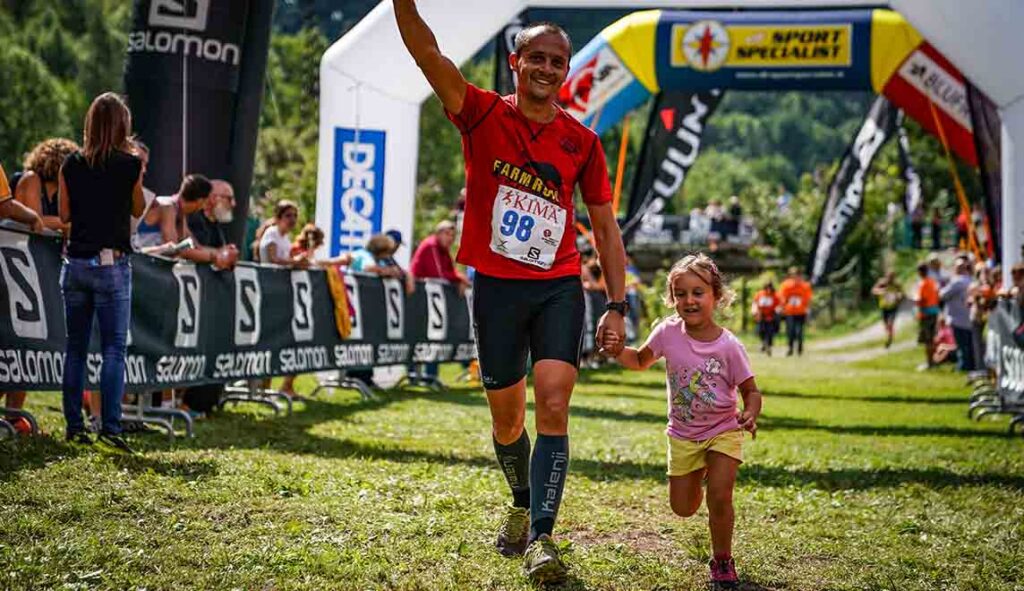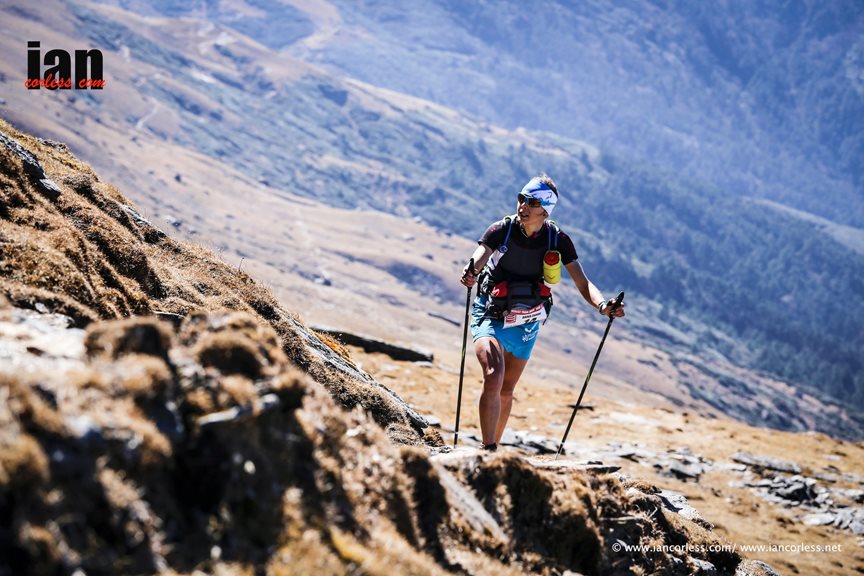Last updated: 06-Nov-18
Background
Matt is challenge events manager for a leading children’s medical research charity called Sparks based in London. Having run a few marathons and with a dream of running the MDS, he began longer runs, starting with a 5-day run across Scotland in 2011. Matt shares his top tips for kit and highs and lows of running, before he successfully ran his first MDS in April 2014.
Read more of Matt’s top tips and ultra running experiences below:
Your experience of ultra running
Q. How long have you been doing ultras?
A. I’ve been running ultras since 2011. I had done a few marathons before this but felt that I needed to push my endurance to the next step, ultras were the natural progression.
Q. How did you first get started doing ultras?
A. I’ve always dreamt of one day running the Marathon Des Sables (MDS), even before I was a runner! Back in 2011, once I’d done a few marathons, I decided that I wanted to start building my ultra experience to maybe one day be at a level where I can enter the MDS and survive! I decided to run across Scotland with a friend, as a kind of compromise to not feeling ready for MDS, but doing a multi-day challenge that was tough. We ran from Oban to St Andrews over 5 days with only our family as support, it was an amazing experience. I then started entering some ultra races and haven’t looked back since.
Q. What motivated you to start running?
A. In my job as a Challenge Events Manager for a charity, I was constantly talking to people about doing charity runs, and offering them advice. I felt that I needed to be running myself to offer the best advice I could…and so it started.
Q. When did you do your first ultra race?
A. At the end of 2011 I did my first official race – the Endurance life Coastal Trail Series race in Dorset. It was absolutely brutal, possibly not the best place to start but it didn’t put me off!
Q. Why do you keep running ultras?
A. I love the camaraderie that comes with running ultras and also being involved in the ultra running community. I’ve met so many inspiring and lovely people. I love being outdoors and, of course, I love to run. Running an ultra is literally the best way to spend a day in the countryside, I love it.
Top Tips
Q. What are the essential ingredients to being successful in ultras?
A. I would say the main one is to be prepared, not just physically but mentally as well. I think someone once said that 90% of running and ultra is psychological, and the other 10% is in your head! Obviously this isn’t quite true but not far from it. When I run ultras I really work hard to not dwell on the miles left to go, and to try and stay positive at all times. I even lie to myself sometimes, pretending that I’ve only done 10 miles when I know I’m closer to 20, sounds stupid but it kind of works!
Q. What tips would you give to someone doing their first ultra?
A. Take your time! Yes it’s a race and you want to do it as quick as you can, but take it easy and enjoy the experience, chat to your fellow runners and learn from their experiences. Understand that it’s going to be tough, and you’re going to get tired, but the feeling of reaching that finish line will be unforgettable.
Q. What type of kit do you feel is essential for an ultra?
A. I think there are two essential bits of kit that you shouldn’t cut corners with. Trainers…these need to be comfortable and appropriate for the terrain you are crossing, you are going to be running 30, 40, 50+ miles so its madness to not have decent trainers. The amount of people I see sliding around in mud with road shoes on, when on a trail ultra, is madness, you are just wasting precious energy. Also I would say that a good bag is essential, again you will be wearing this bag all day so it must be comfortable, not bounce around and not rub. The straps should be done up properly and it should feel part of you, if you notice you bag and it’s bugging you, it’s either not done up properly or it’s not suitable. Then there is everything else, I could write a book on this but it’s all down to personal choice, and budget…personally I like to wear calf guards (Compressport) and some comfy shorts, I’m wearing 2XU shorts for the MDS.
Q. What is the one thing you never travel without?
A. A change of clothes and some food for recovery! The last thing you want at the end of a run is to be sitting in your car with your sweaty, wet kit on. Remember to take some warm comfy clothes to change into, and food, lots of food!
The good times
Q. What is your proudest achievement to date?
A. I would say so far it would be running across Scotland, as I was still new to ultra running so to run 5 days of 25-33 miles a day was a big deal for me…assuming (hoping) I complete the MDS, I’m sure that will be my new proudest achievement by a long way.
Q. What has been your favourite ultra to date?
A. I really enjoy the Centurion North Downs Way 50. I live in Guildford so it comes through my training area which I know well, and it’s a beautiful but tough race. Centurion also put on fantastic races.
Q. Which type of ultras do you like best?
A. I enjoy multi-day events because it gives you that extra challenge, it’s one thing running a long way for one day but it’s a whole different thing to do it numerous days in a row!
The rough times
Q. What has been the most challenging ultra to date for you?
A. I would say my first, the Endurance life Coastal Trail Series ultra in Dorset, mostly because I was inexperienced but also because there was a cut-off time that really stressed me out. I managed it by literally two minutes! Another tough one was the South Downs Way 50, mostly because of the weather – it rained the whole day and was windy and cold. Many runners dropped out with hypothermia, it was a real test of mental strength.
Q. What aspect of ultra running is the hardest for you?
A. This is a tough question, I would say going faster! I can handle the distance generally but I find it hard to increase my speed, I’m slowly getting there but I need to do some more specific training to improve this.
Salvation time
Q. Who or what has been your biggest help in doing ultras?
A. Probably my wife! It takes a very understanding partner to be with an ultra runner with all the races and training that it involves. My wife is super supportive and understands my ‘need’ to go out running. I do my best to ensure that it doesn’t impact on family life but sometimes it does, and she is very supportive, even though she thinks I’m a bit mental!
Q. Have you made any significant sacrifices to complete ultras?
A. It’s probably mostly the time it takes to prepare for an ultra. This is going to have an impact on other aspects of your life but you have to make the decision as to whether or not you want to make these sacrifices. I guess if you don’t want to sacrifice a trip to the pub because of your run the next day, then your heart isn’t totally into ultra running anyway.
Learning
Q. What have you learned by doing ultras?
A. I’ve learned a lot about myself – what my limitations are, how I cope under pressure, and when fatigued. And I’ve also learned what is important to me in life. You get a lot of time to think when running ultras and it’s a good time to reflect on your life, where you are going, where you have been, and how you can better yourself.
Q. How do you feel ultras have changed you and your life?
A. It’s definitely made me healthier! I’ve always needed something to focus on in my life and there has never been anything better than ultra running, it makes me happy and that can only be a good thing right?
Q. Any helpful sayings or beliefs that have helped your running?
A. Nothing can be called impossible until you’ve given it a go! Go for it, see what happens, and enjoy the experience. Never give up.
Q. How do you get motivated to do the training?
A. A lot of my day-to-day training actually forms part of my commute to work, so if I don’t run, I don’t get to work! So that’s a decent motivation. For longer runs I enjoy meeting with friends and making a real day of it.
Training and Prep
Q. How do you train for an ultra?
A. I try to hit about 10 miles a day during the week and then do one long run at the weekend. It depends which ultra it is but this serves me fairly well and fits around my work and family. I try and do lots of miles, throw lots of hills in for good measure, and sometimes wear a weighted pack.
Q. How does your training differ for each type of ultra?
A. I’ve not varied my training much dependant on each type of ultra to be honest, however if I’ve preparing for an multi-stage event I will ensure that I do some good back-to-back running in the lead up, maybe 20 miles on the Saturday then the same on the Sunday. That is really good preparation.
Future
Q. What race are you doing next?
A. MDS 2014, then my next races are the North Downs Way 50 and Endure24. Not sure what I’m doing after that. We shall see.
Q. What do you hope to achieve with your ultra running in the future?
A. I want to get faster and fitter, I want to achieve something unique that no one else has ever done. I haven’t worked out what this might be yet though! Any suggestions, get in touch!
Q. What would be your dream ultra event?
A. Hmmm…maybe a 5-day ultra that takes in varied terrain of desert, jungle, city, mountains and the coast…not sure there is anywhere where that is even possible but it would be fun!






